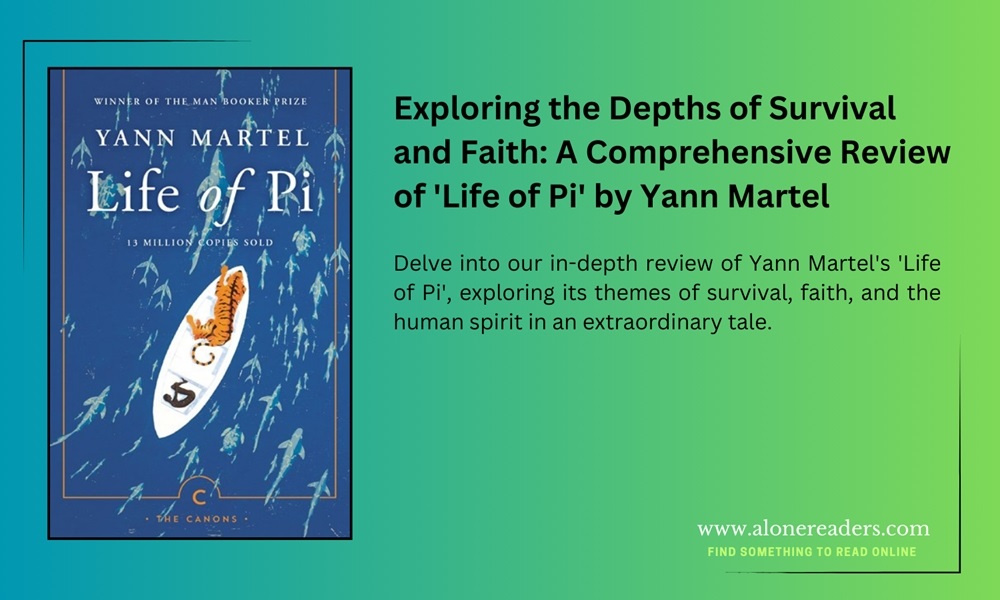
In the realm of modern literature, few books manage to leave a mark as indelible as Yann Martel's "Life of Pi". This extraordinary novel, which has garnered both critical acclaim and widespread popularity, offers a rich tapestry of themes and emotions, intertwining the survival story of a young boy with profound reflections on faith and the human spirit.
At its core, "Life of Pi" is a survival story, one that takes the reader on a journey across the Pacific Ocean. Pi Patel, the protagonist, finds himself stranded on a lifeboat after a tragic shipwreck. His companions in this ordeal? An orangutan, a wounded zebra, a hyena, and a Bengal tiger named Richard Parker. Martel's depiction of this unlikely scenario is both imaginative and grounded, weaving a narrative that feels as real as it is fantastical.
The relationship between Pi and Richard Parker forms the crux of the novel. Martel masterfully explores the dynamics of fear, power, and mutual dependence. The tiger, initially a terrifying threat, gradually becomes a source of companionship and a crucial factor in Pi's survival. This progression is not just a tale of a boy and a beast; it’s a deeper exploration of how adversity can lead to an unexpected and profound bond.
Martel's prose is a blend of the simple and the profound. He has a unique ability to convey deep philosophical ideas in a language that is accessible yet thought-provoking. His descriptions of the ocean, the sky, and the solitude of Pi are vivid and evocative, painting a picture that is both beautiful and haunting. The narrative, oscillating between the present and Pi's reflections, adds a layer of depth, making the reader ponder the nature of truth and belief.
A significant theme in "Life of Pi" is the exploration of faith and religion. Pi, interestingly, practices Hinduism, Christianity, and Islam, finding solace and meaning in all. This interfaith perspective is rare in literature and is handled with respect and curiosity. The novel does not advocate for any one religion but rather celebrates the human need for belief and the search for something greater than oneself.
Another intriguing aspect of "Life of Pi" is its exploration of the nature of storytelling and reality. Martel presents an alternative version of Pi's story towards the end, prompting readers to question which version is true, or if truth in storytelling matters at all. This ambiguity is not a flaw but a strength of the novel, as it invites multiple interpretations and discussions.
However, "Life of Pi" is not without its criticisms. Some readers might find the narrative pace uneven, with certain sections, particularly at the beginning and the end, feeling slower compared to the gripping survival tale at sea. Furthermore, the philosophical and religious musings may not resonate with everyone, potentially alienating readers who prefer more straightforward narratives.
Despite these minor qualms, "Life of Pi" remains a masterpiece of modern literature. It’s a novel that stays with you long after you’ve turned the last page, a testament to Martel’s skill as a storyteller and his deep understanding of the human condition. It’s a tale of survival against all odds, a meditation on faith and the power of stories, and ultimately, a celebration of life in all its complexity and wonder.